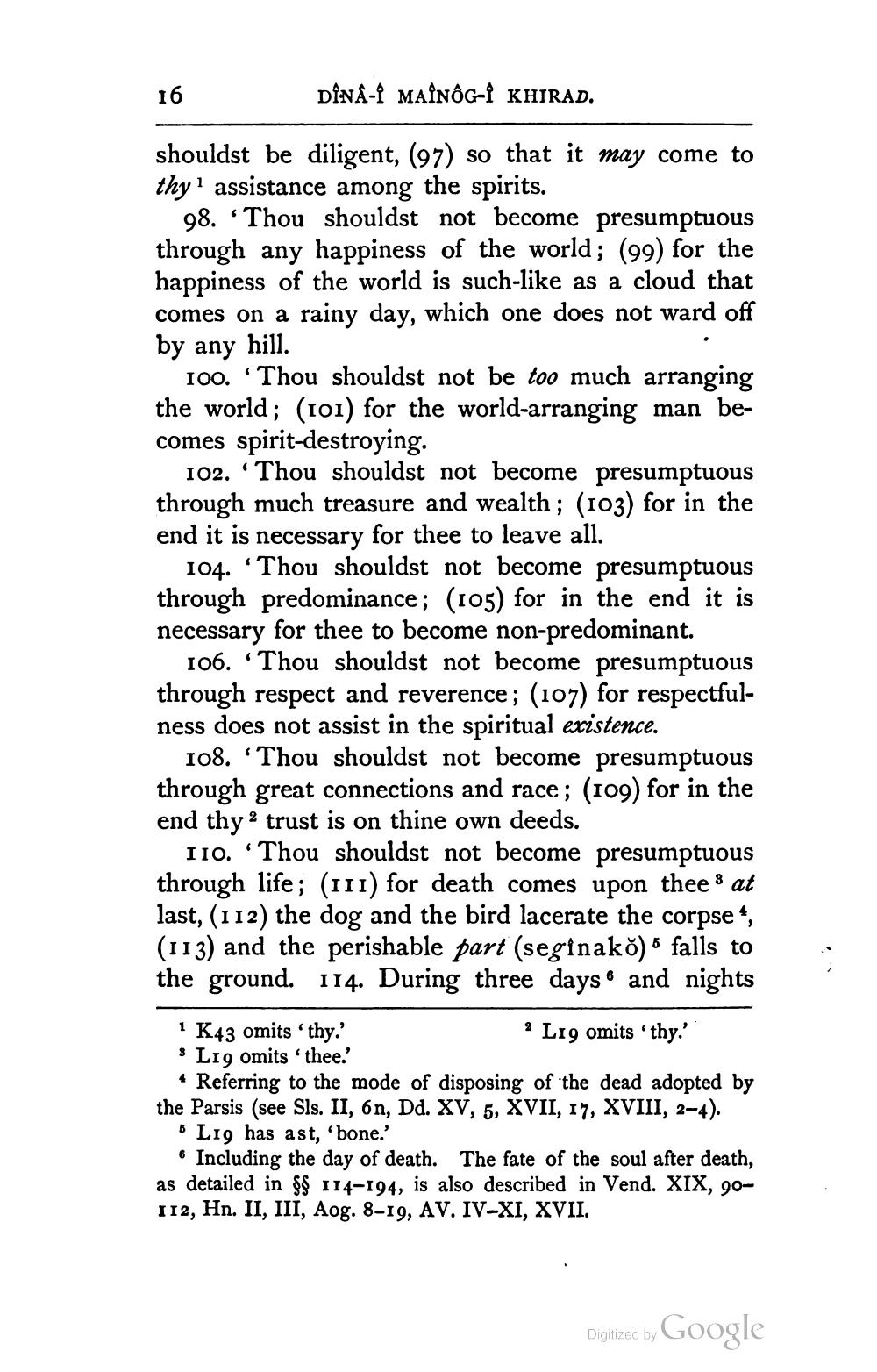________________
16
DINÂ-Î MAÎNÔG-Î KHIRAD.
shouldst be diligent, (97) so that it may come to thyl assistance among the spirits.
98. “Thou shouldst not become presumptuous through any happiness of the world; (99) for the happiness of the world is such-like as a cloud that comes on a rainy day, which one does not ward off by any hill.
100. “Thou shouldst not be too much arranging the world; (101) for the world-arranging man becomes spirit-destroying.
102. 'Thou shouldst not become presumptuous through much treasure and wealth ; (103) for in the end it is necessary for thee to leave all.
104. “Thou shouldst not become presumptuous through predominance; (105) for in the end it is necessary for thee to become non-predominant.
106. “Thou shouldst not become presumptuous through respect and reverence; (107) for respectfulness does not assist in the spiritual existence.
108. 'Thou shouldst not become presumptuous through great connections and race; (109) for in the end thy 2 trust is on thine own deeds.
110. 'Thou shouldst not become presumptuous through life; (111) for death comes upon thee 8 at last, (112) the dog and the bird lacerate the corpse, (113) and the perishable part (seginako) • falls to the ground. 114. During three days and nights
1 K43 omits 'thy.'
L19 omits 'thy.' 8 L19 omits thee.'
• Referring to the mode of disposing of the dead adopted by the Parsis (see Sls. II, 6n, Dd. XV, 5, XVII, 17, XVIII, 2-4).
L19 has a st, "bone.' 6 Including the day of death. The fate of the soul after death, as detailed in $$ 114-194, is also described in Vend. XIX, 90112, Hn. II, III, Aog. 8-19, AV. IV-XI, XVII.
Digitized by Google




